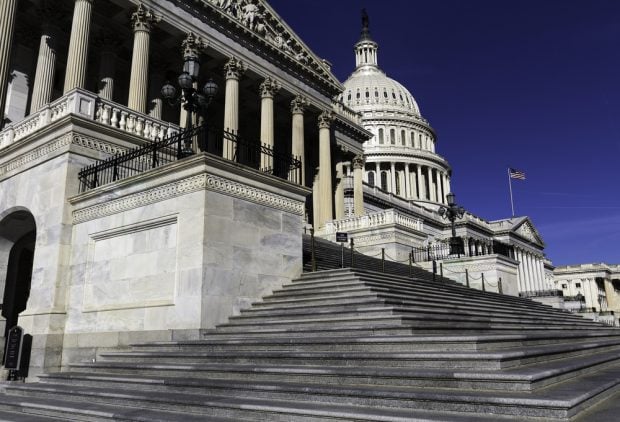 Credit/Shutterstock
Credit/Shutterstock
On Monday, Rep. Claudia Tenney (R-N.Y.) spoke to the crowd gathered for the American Bankers Association Conference in New York and raised the issue that there are "inequities and disparities" in the way credit unions are regulated compared to banks, as well questioned the industry's tax-exempt status. The lawmaker stated she'd like the House Ways and Means Committee to hold a hearing about it. Rep. Tenney is a member of that committee.
The next day, three credit union groups wrote to Rep. Tenney to push back on her assertions about credit unions and also to educate her on the benefits and structure of the cooperative financial system.
Recommended For You
On Tuesday, New York Credit Union Association President/CEO William Mellin and America's Credit Unions President/CEO Jim Nussle sent a joint letter to Rep. Tenney. Jason Stverak Chief Advocacy Officer with the Defense Credit Union Council (DCUC) also filed a letter the same day.
In the four-page letter sent Monday to Rep. Tenney, Mellin and Nussle stated, "In your comments to the ABA, you mentioned the need for the House Committee on Ways and Means to look at 'the disparity on how [one] decides who's going to be a member of [a] credit union.' Further stating that you believe some of those rules to be lax. The statutory and regulatory provisions regarding credit union field of membership are complex and can be confusing. Your statement highlights the importance of ensuring members of Congress are sufficiently informed on the subjects for which they are legislating. As such, we are happy to meet with you to explain how credit union field of membership works, as well as various statutory amendments throughout the years."
 Rep. Claudia Tenney (R-N.Y.)
Rep. Claudia Tenney (R-N.Y.) The joint letter also said, "The tax-exempt status afforded to credit unions allowed them to serve areas and people that banks would not serve. By every account, this legislation has been an unparalleled success. Data shows the credit union tax status brings $35 billion in financial benefits to members and non-members, making the credit union tax exemption one of the best investments the U.S. government makes."
Stverak wrote, "The regulatory differences between banks and credit unions are based on the distinct missions and operational models of these two sectors. While banks are subject to CRA requirements as part of their mandate to serve entire communities equitably, credit unions operate with field-of-membership constraints, inherently focusing on serving targeted, often underserved, populations."
"We strongly disagree with the notion that credit unions are somehow less regulated than banks. Similar to its counterparts in the banking sector, the National Credit Union Administration (NCUA) oversees federal credit unions and ensures they adhere to a comprehensive set of rules and regulations designed to maintain the safety and soundness of the credit union system," Mellin and Nussle wrote. "While inherently different from those applicable to banks, the plethora of statutory and regulatory requirements from the NCUA and other federal financial regulators that credit unions must comply with are no less inclusive, addressing all aspects of credit union operations."
In their letters, each offered to discuss credit union issues with the Rep. Tenney in the future.
Rep. Tenney is currently running for re-election to the House against David Wagenhauser in New York's 24th Congressional District.
© Touchpoint Markets, All Rights Reserved. Request academic re-use from www.copyright.com. All other uses, submit a request to [email protected]. For more inforrmation visit Asset & Logo Licensing.







